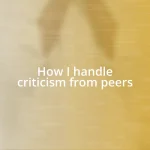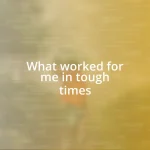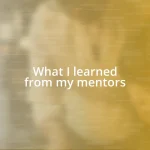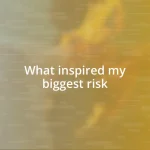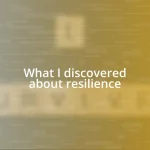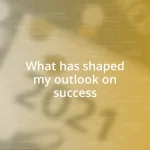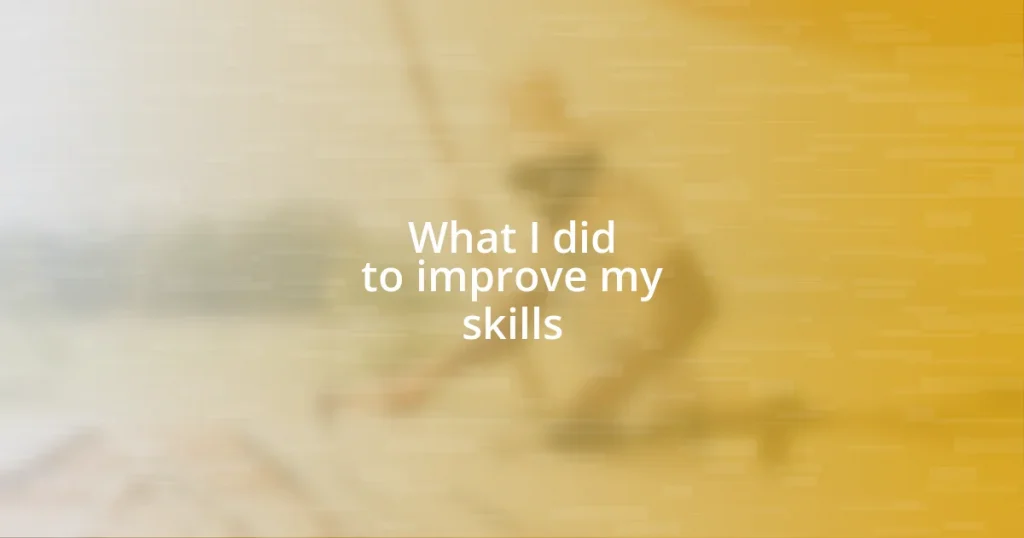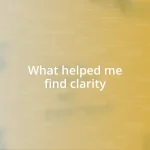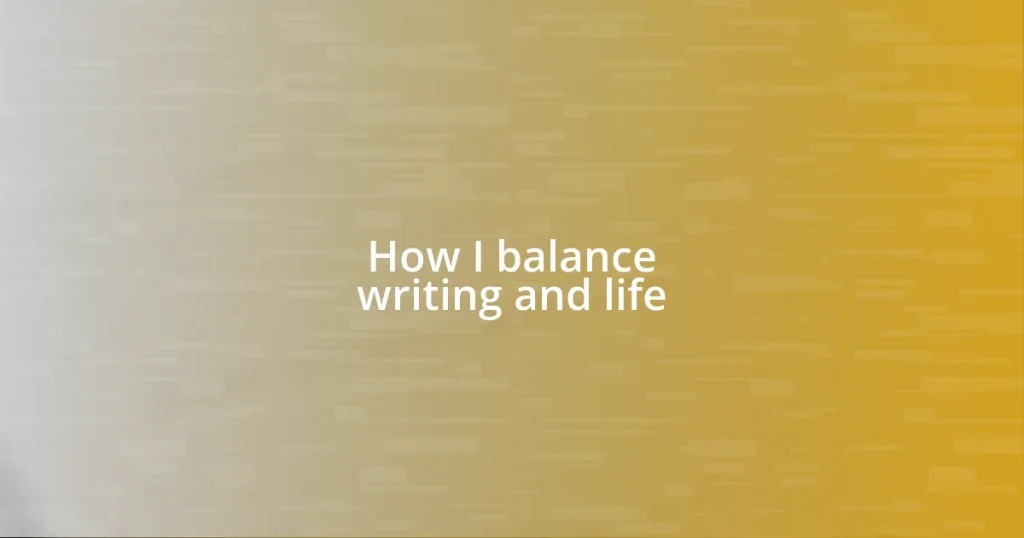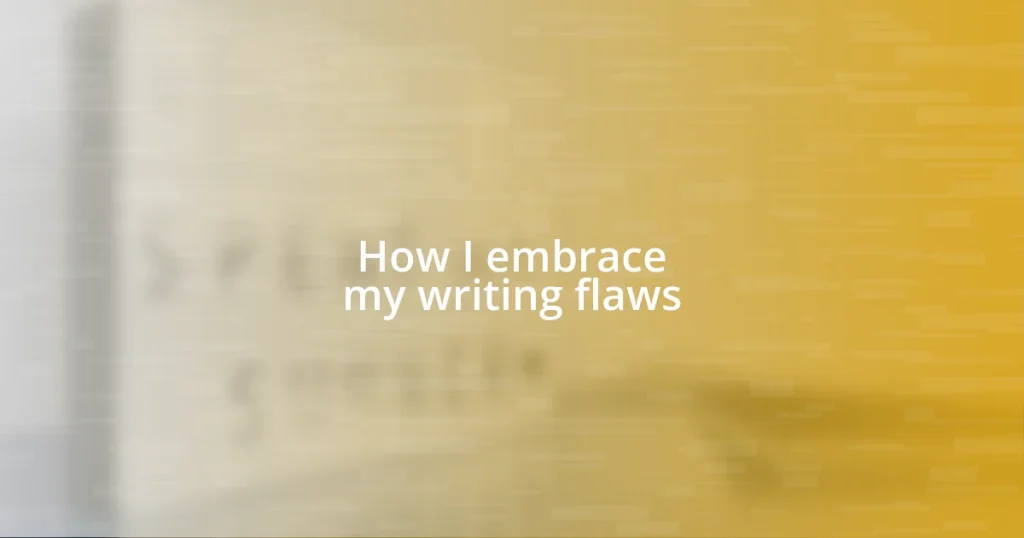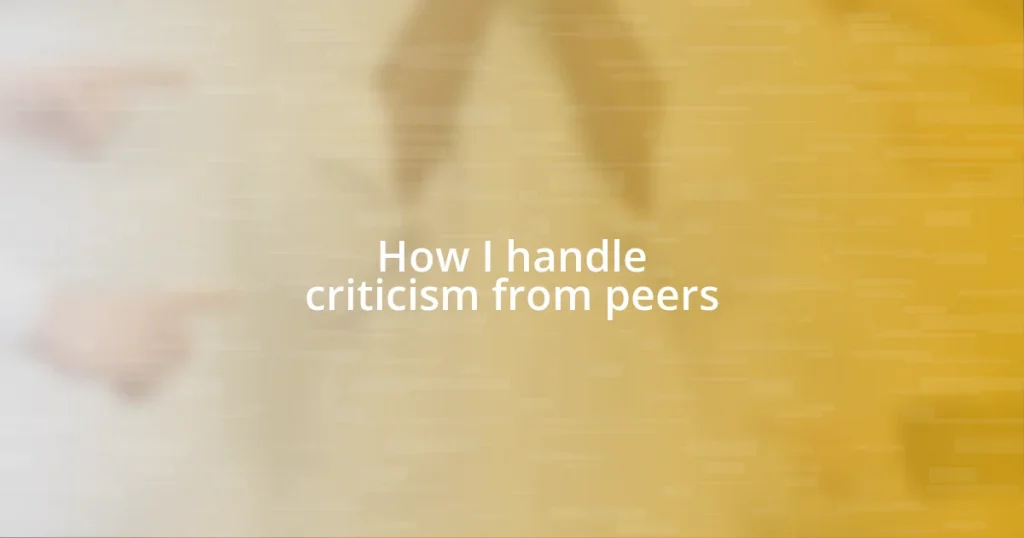Key takeaways:
- Assessing skills through self-reflection and feedback from others is crucial for identifying areas for growth and passion.
- Setting clear, measurable improvement goals transforms skill development from vague ambitions into actionable steps.
- Seeking mentorship and regularly reflecting on progress fosters continuous learning and adaptability in the skill-building journey.
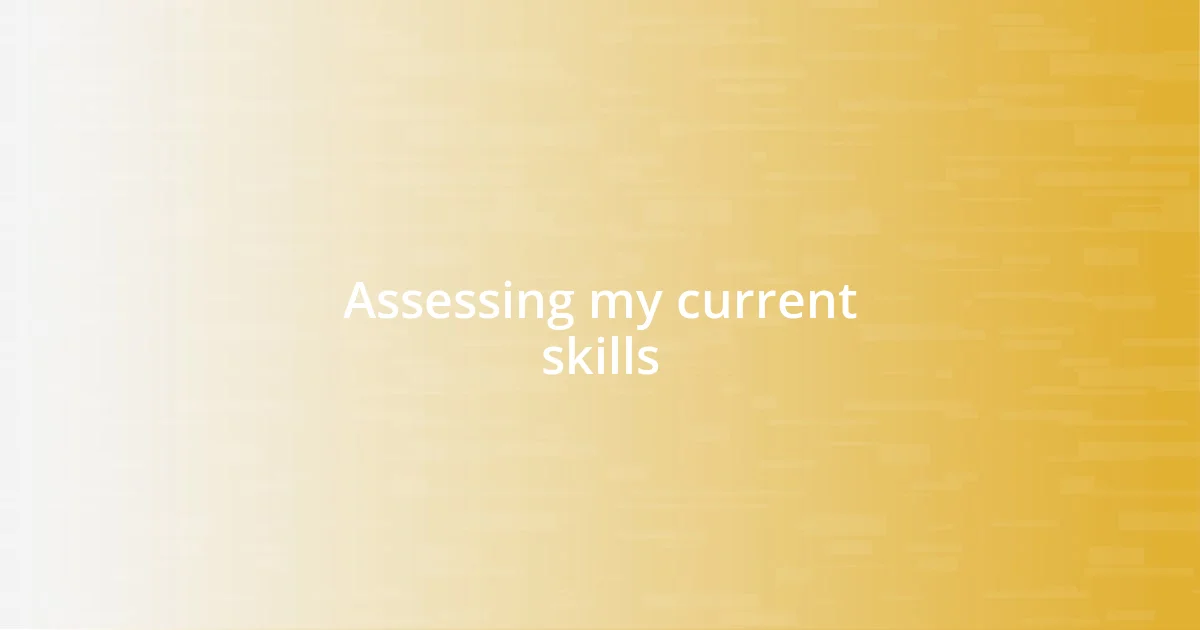
Assessing my current skills
To truly assess my current skills, I began by reflecting on moments when I felt particularly confident and when I struggled. For instance, I remember a time when I was tasked with leading a team presentation. The adrenaline rush during those moments showed me I had strong communication skills, but the lingering anxiety suggested there was still room for growth in my public speaking.
I also found it helpful to seek feedback from peers and mentors. When someone pointed out that my problem-solving abilities were strong but could benefit from a more structured approach, I was taken aback. It made me realize that, while I was good at thinking on my feet, having a clearer strategy would elevate my effectiveness.
As I jotted down these reflections, I asked myself, “What skills do I genuinely enjoy using?” That question was pivotal. A memory of helping a friend troubleshoot a complex issue brought me joy and clarity, illustrating how my analytical skills were a passion, not just a checklist item. This insight laid the foundation for targeted growth, turning skill assessment into an exciting journey.
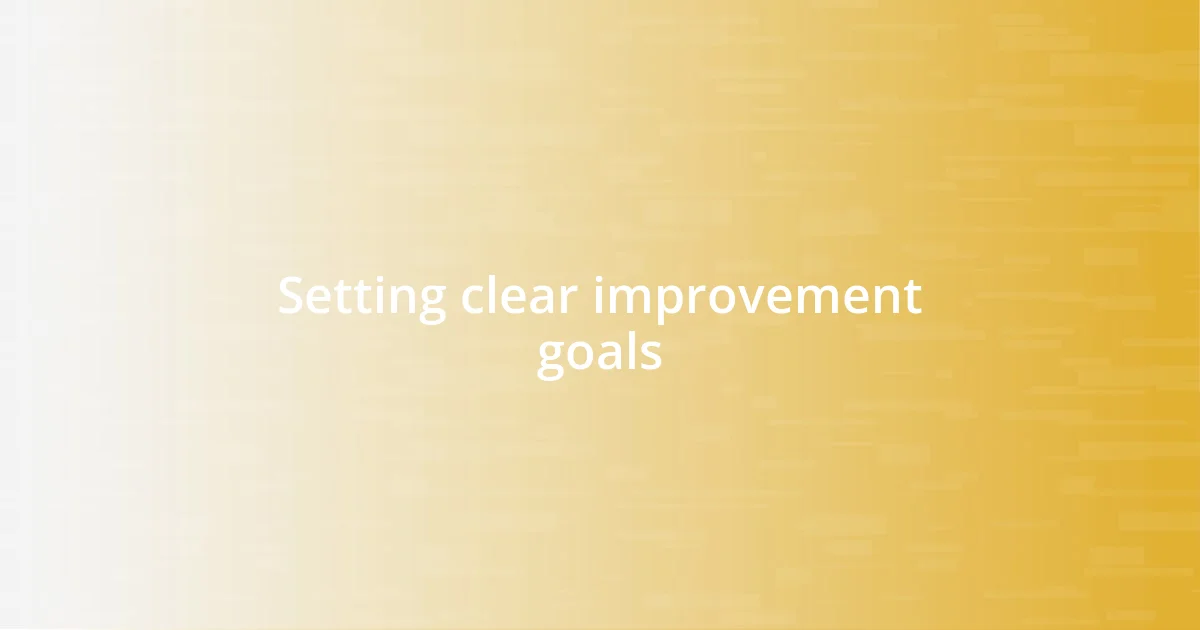
Setting clear improvement goals
Setting clear improvement goals can truly transform your skill development journey. I learned firsthand that vague ambitions often lead to hazy outcomes. For example, when I aimed to “become better at writing,” I realized it was too ambiguous. Instead, I narrowed it down to “write a blog post every week for three months.” This approach provided me not only with structure but also with a sense of achievement with each completed post.
Breaking down goals into measurable components was another game changer for me. One of my goals was to enhance my teamwork skills. Instead of merely saying, “I want to be a better team player,” I specified participating in at least two collaborative projects each month. Each project not only polished my interpersonal skills but also offered me real-time feedback from teammates, which I found valuable.
Moreover, I discovered the power of visualizing my goals. After setting a target to read a new book related to my field every month, I created a chart to track my progress. Each time I completed a book, I filled in a new box. The visual representation motivated me to keep going, reminding me that each page turned was a step forward in my personal growth.
| Goal Type | Description |
|---|---|
| Vague Goal | Aim to ‘become better at writing’ |
| Clear Goal | ‘Write a blog post every week for three months’ |
| Vague Goal | Aim to ‘be a better team player’ |
| Clear Goal | ‘Participate in two collaborative projects each month’ |
| Vague Goal | Aim to ‘read more’ |
| Clear Goal | ‘Read a new book related to my field each month’ |
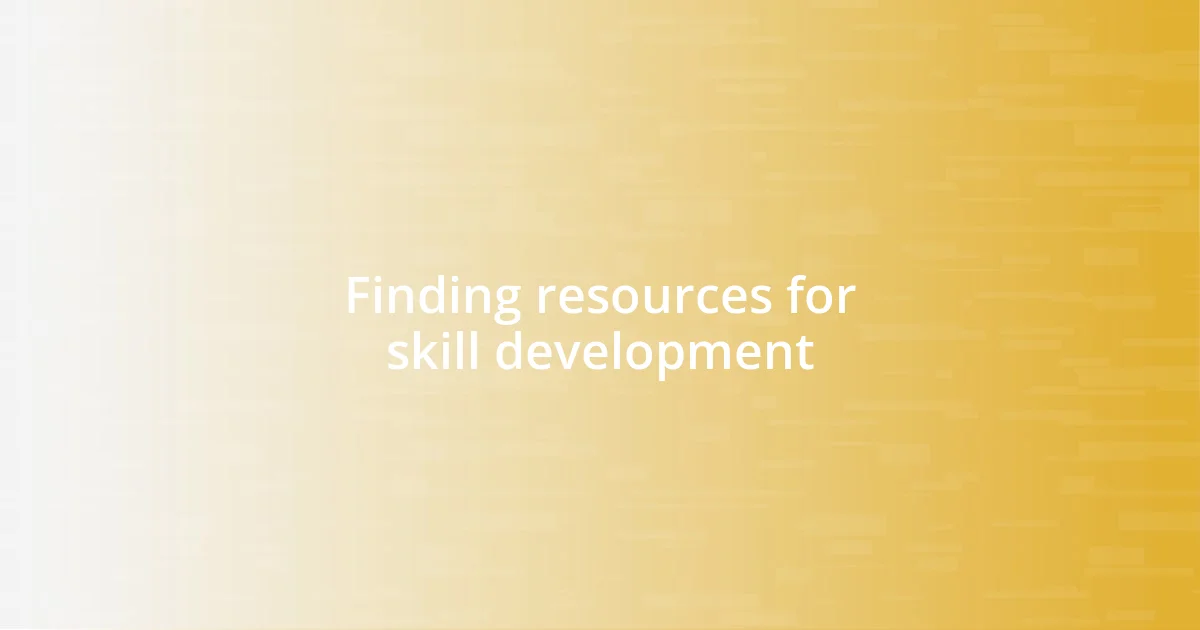
Finding resources for skill development
Finding the right resources for skill development can be a game changer. I remember when I was on my journey to improve my coding abilities. My initial approach was chaotic—I tried random online tutorials without a clear direction. That changed when I discovered curated learning platforms. They provided structured paths tailored to my skill level, which made the learning process feel more manageable and less overwhelming.
Here are some resources I’ve found invaluable:
- Online Courses: Websites like Coursera or Udemy offer comprehensive courses with reviews that help gauge quality.
- YouTube Channels: Many educators provide free content that visually demonstrates concepts in an engaging way.
- Books: I often turn to specific titles in my field, which give deeper insights and frameworks to understand the subjects thoroughly.
- Workshops and Webinars: These are great for hands-on experiences and networking with like-minded learners.
- Mentorship: Connecting with someone experienced in the field, like a colleague or industry professional, can offer personalized guidance that online resources often lack.
Additionally, I began using online forums and communities to share my progress and challenges. Engaging with people who were going through similar experiences brought a sense of camaraderie that kept me motivated. It’s incredible how sharing your highs and lows can foster connections and provide new perspectives, making the learning process not just about skill acquisition but about community building.
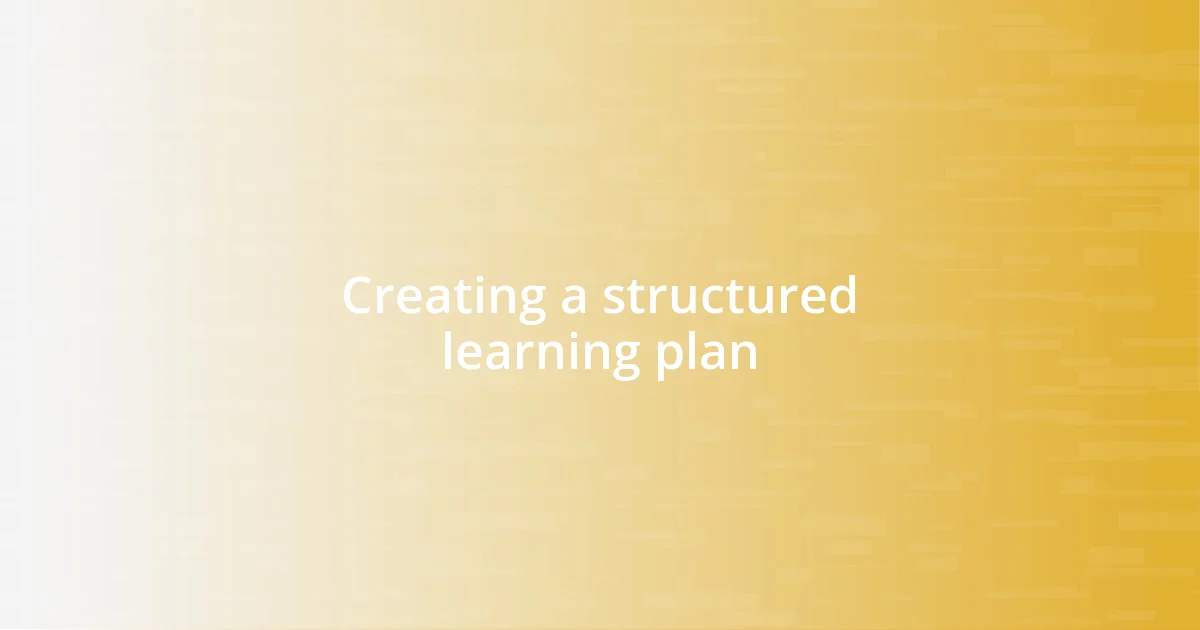
Creating a structured learning plan
Creating a structured learning plan was a true revelation for me. I vividly remember when I decided to enhance my public speaking skills; instead of just waiting for chances to present, I mapped out specific milestones. Weekly, I committed to practicing speeches with friends, and it quickly became a productive ritual, turning nerves into excitement.
As I structured my learning, I also learned to adjust my plan based on feedback. For instance, during a workshop, I realized my pacing was off. This insight led me to incorporate timed practices into my routine. Each session became a game where I’d challenge myself to communicate more effectively while staying on track. Has there ever been a moment for you when feedback reshaped your goals? It can be so powerful!
Lastly, I found that flexibility within a structured plan is crucial. Early on, I’d beat myself up if I missed a scheduled practice. However, I learned to embrace those moments as opportunities for reflection rather than setbacks. For example, when I couldn’t practice one week because of unexpected work commitments, I used that time to analyze famous speeches instead. This balance between structure and adaptability has been key to my ongoing skill development journey.
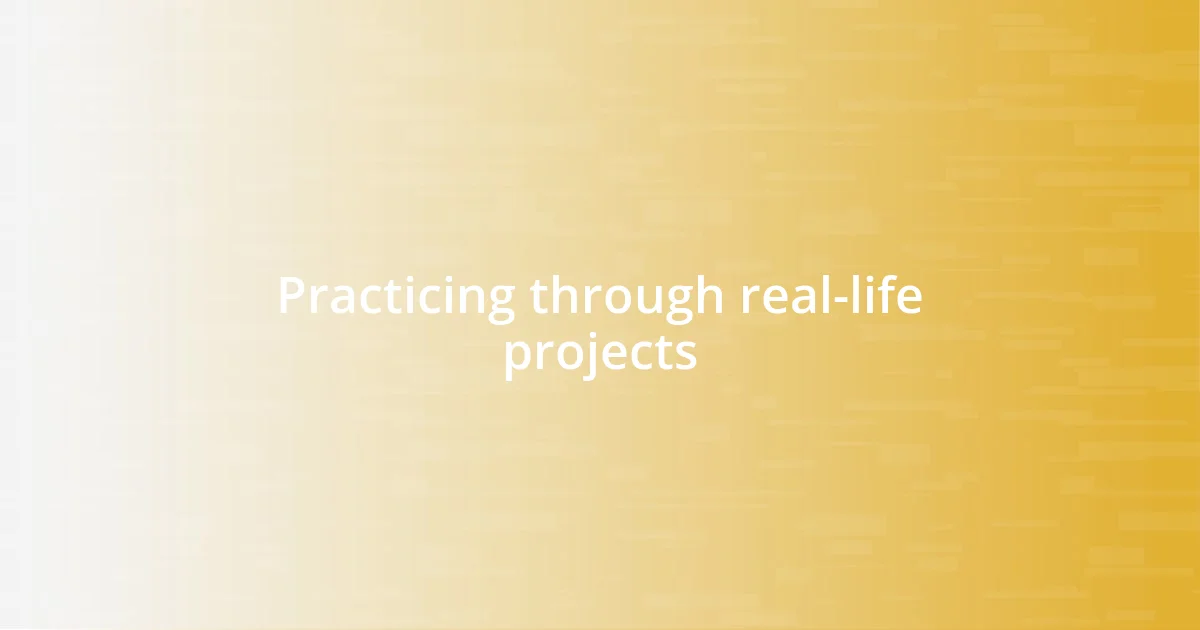
Practicing through real-life projects
Experiencing real-life projects has been a transformative part of my skill development journey. I remember taking on a freelance web design project that pushed me out of my comfort zone. The thrill of creating something from scratch—it was like watching ideas bloom into reality. Have you ever felt that rush when you solve a problem in front of you? It’s incredibly rewarding.
On that project, I learned more than just design principles; I honed my communication skills while collaborating with the client. We often disagree on design choices, which forced me to articulate my rationale clearly. I remember one tense meeting where I presented my ideas. The feeling of anxiety in the pit of my stomach was palpable, but as I spoke, I found my voice. It made me realize how essential it is to express your vision, especially in collaborative environments.
By tackling real-life projects, I also encountered challenges that no tutorial could prepare me for. For instance, when a technical issue arose just days before the launch, I had to troubleshoot on the fly. I vividly recall the late nights spent combing through forums and reaching out to mentors. Those moments were stressful, but they taught me resilience and resourcefulness. Have you faced a similar challenge that pushed you to grow? I believe these experiences, while daunting, truly sharpen our skills and reveal our capabilities.
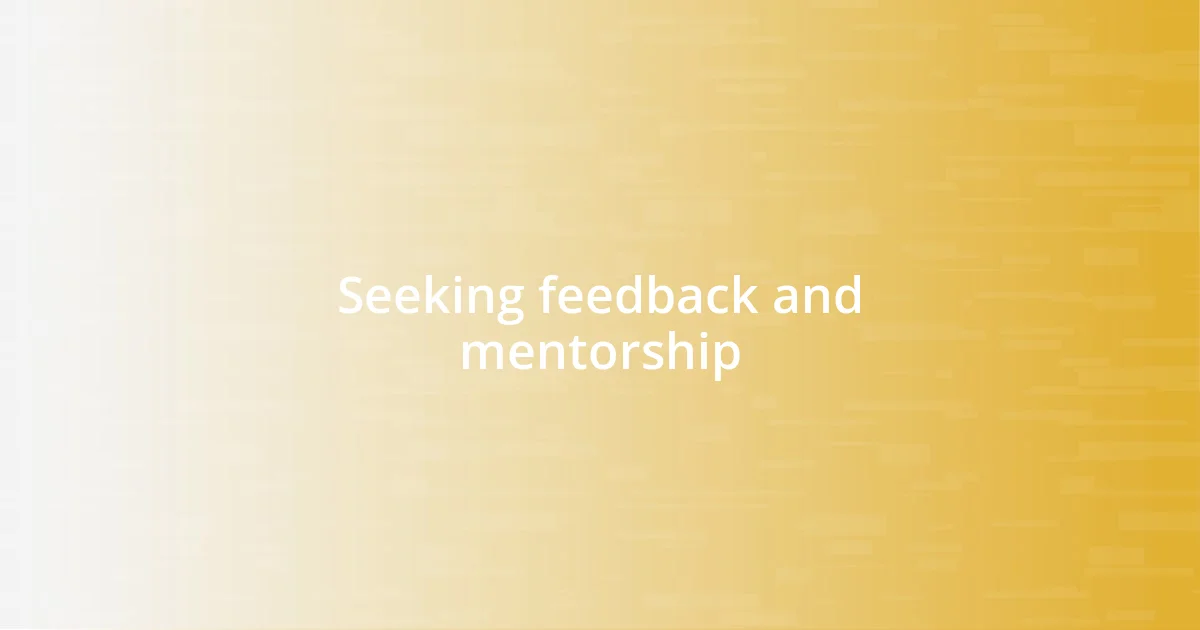
Seeking feedback and mentorship
Seeking feedback and mentorship has significantly shaped my growth journey. I vividly recall approaching a former colleague for guidance while trying to improve my writing skills. During our coffee chat, I nervously shared a recent article I’d written, expecting a simple compliment, but instead, she offered nuanced critiques that were both challenging and enlightening. Her honest feedback made me realize that constructive criticism is a gift, and each suggestion was like a stepping stone toward better expression.
Mentorship has also played a crucial role in my development. I remember my first formal mentoring relationship; I was unsure of my direction and goals. My mentor, a seasoned professional in my field, helped me clarify my ambitions and set actionable steps. That experience opened my eyes to the power of having someone believe in you and guide you. Have you ever had a mentor who could see your potential even when you couldn’t? Their encouragement can be the catalyst needed to push beyond perceived limits.
Lastly, I understand the importance of creating a feedback loop. After sharing my work, I would regularly ask open-ended questions, like “What could I have done differently?” This practice not only invited critical insights but also fostered a continuous learning atmosphere. Once, after revising an article based on feedback, I felt an incredible sense of accomplishment when my writing resonated with readers. Isn’t it fascinating how seeking feedback can transform our understanding and elevate our skills?
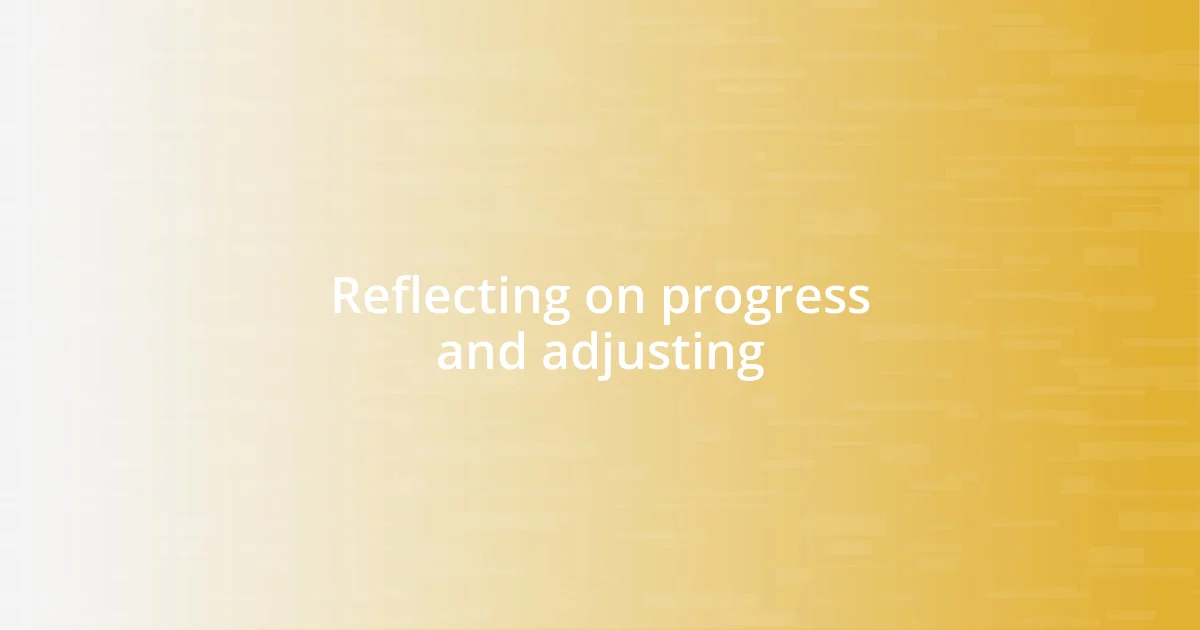
Reflecting on progress and adjusting
Reflecting on my progress has become a cornerstone of my improvement strategy. I remember sitting down with a journal at the end of each month, reviewing what I had learned and where I stumbled. It often surprised me how a few missed opportunities could later be framed as valuable lessons. Have you ever taken the time to analyze your growth? I find that this self-reflection not only highlights my strengths but also illuminates the areas I need to focus on moving forward.
As I noted the patterns in my progress, I realized that adjusting my approach was crucial. For example, after a challenging project where I struggled with time management, I decided to implement new techniques like the Pomodoro technique—working in bursts with planned breaks. This simple change made a world of difference. Implementing these adjustments based on my reflections has helped me avoid the pitfalls I used to encounter regularly.
More importantly, I’ve learned to embrace the discomfort of change. It’s often unsettling to shift gears, but it can lead to incredible growth. I vividly recall a moment when I decided to pivot my focus towards a different skill set, which initially felt like stepping into the unknown. The uncertainty was daunting, yet, looking back, it was one of the best decisions I made. Isn’t it fascinating how sometimes discomfort can be the bridge to mastering new skills?


